(July 5, 2024) “Humans are aiming for Mars; can’t we create a plastic-free pen? It can’t be that difficult,” wondered Delhi-based Saurabh Mehta in the summer of 2020. Drawing on his years of experience in eco-friendly writing instruments, he developed the world’s first 100 percent biodegradable pen – NOTE pen. Made entirely from scrap newspaper, ink, and a nib, his pen is a far cry from the plastic pens that have dominated the market for over 80 years. “Plastic pens often go unnoticed because they aren’t as visible on streets as PET bottles, but over 50 billion of them are discarded annually and are impossible to recycle,” Saurabh tells Global Indian.
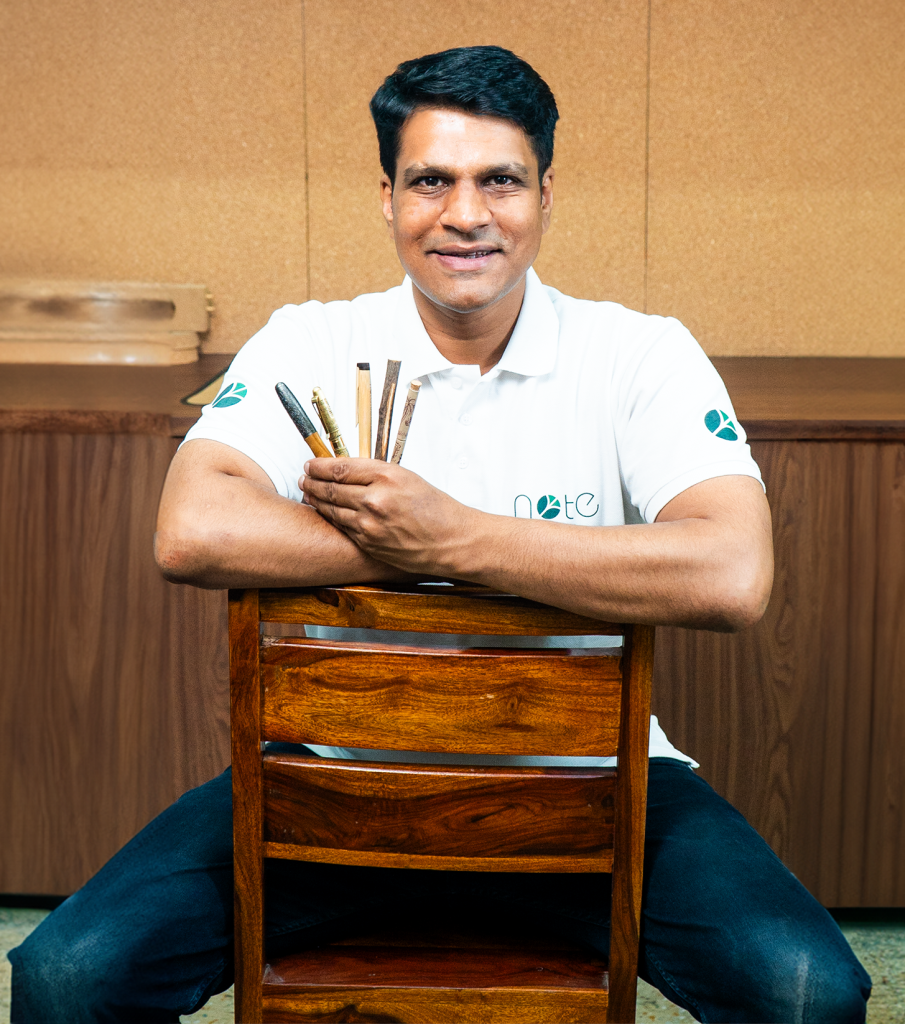
Saurabh Mehta
This inspired him to create a solution that benefits the environment and has the potential to revolutionise the pen industry. “There has never been an alternative to plastic pens, which are especially essential in schools. Recognising the demand, I decided to develop a pen that is 100 percent biodegradable—good for both users and the Earth,” explains the entrepreneur.
Family business
Growing up in a family involved in the writing instrument business, Saurabh was introduced to this world at a young age. His grandfather started making fountain pen nibs in 1965, eventually moving on to ball pen nibs and refills. Saurabh’s father later expanded into manufacturing ball pens. “Dinner table conversations often centred on how people have stopped using refills, leading to a decline in their sales and a shift towards buying pens in bulk instead,” recalls Saurabh, who shared a strong bond with his grandfather. “He would often talk about this transition to a use-and-throw culture and warned me that it would be disastrous to the pen industry. Interestingly, he used only one fountain pen throughout his life.”
Exploring renewable energy in SE Asia
As a child, he often visited the factory after school, where the sight of refills discarded on the floor irked him. “That’s when I first became aware of plastic waste. By the time I finished school, I was drawn to sustainability.” After earning his degree in electrical engineering from Bharati Vidyapeeth’s College of Engineering, Saurabh’s focus shifted to renewable energy. For a decade, from 2006 to 2016, he worked off the grid, primarily on village electrification projects in Southeast Asia and Central Europe. “I started with a fellowship, working at the grassroots level. At that time, nearly 60 percent of the population lacked reliable electricity,” recalls Saurabh. “Those years were incredibly formative, teaching me the impact one can create through technology.”
With significant improvement in India’s electrification, he decided to explore opportunities abroad, leading to projects in Nepal and Indonesia. “Indonesia was still at par with India but things were bad in Nepal. The difficult terrain made it hard to extend the grid to high-altitude villages, and there was no clear timeline for when people would have reliable access to power.” Frustrated by the lack of progress in Nepal, he moved to Indonesia. “It was exciting for a while, but I soon realised it wasn’t a good fit for me. Though there were opportunities in Africa, I knew deep down that I didn’t want to leave India.” Around that time, he returned home for Diwali, where his father suggested he join the family business. “Since I was already seeking a change, I decided to take up the business in 2017.”
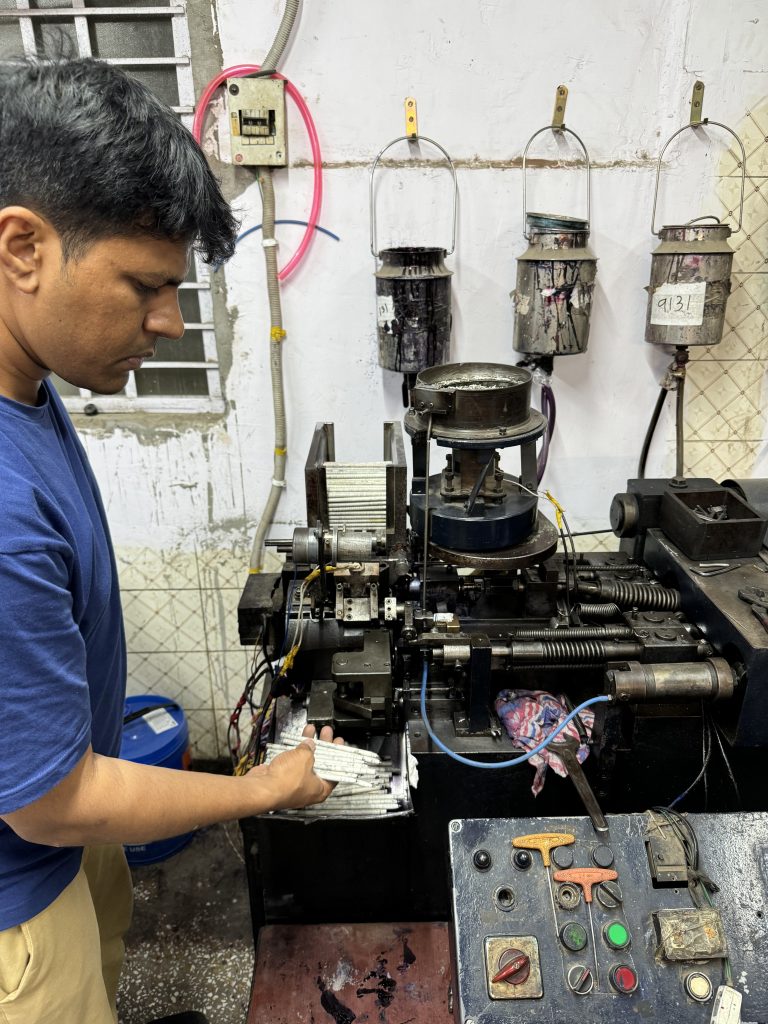
Venturing into sustainable stationery
Saurabh joined the family business with a clear plan: to attract multiple clients and introduce design innovations, particularly in the gifting segment. “I worked with my dad for a year to learn the market, but sustainability was always on my mind, which led me to question my business. I was contributing to the plastic problem,” Saurabh explains. This realisation led him to pivot toward sustainable stationery, launching BioQ in 2017. “I wanted to stay true to my values. Even though sustainability was a novel concept, this gave us a first-mover advantage,” says Saurabh, who dived into eco-friendly stationery, focusing primarily on the gifting market.
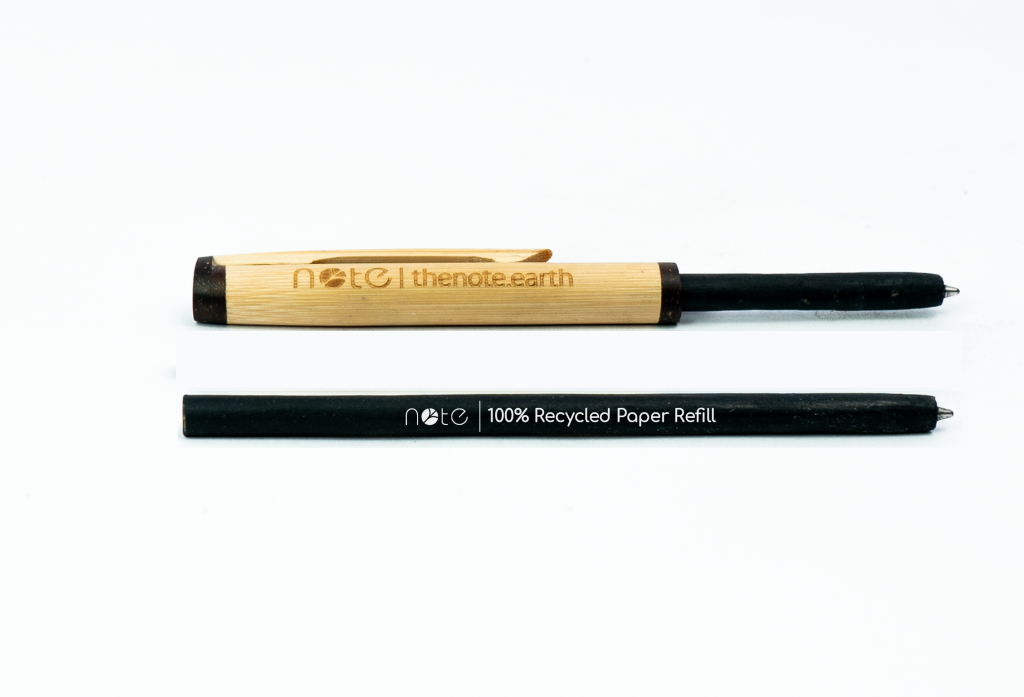
Biodegradable pen and refill
He began his eco-friendly journey with pencils made from paper instead of wood. “20,000 pencils are made from one tree. If you don’t use them, you save a tree. But not using a pencil isn’t an option. ” He sought a sustainable alternative using scrap newspapers, requiring just 5-6 grams per pencil. His focus then shifted to pens, aiming to reduce plastic use. By 2020, he reduced plastic use in pens by 90 percent. “But it wasn’t 100 percent eco-friendly.” This inspired him to create the world’s first fully biodegradable pen, removing the remaining 10 percent of plastic.
World’s first 100 percent biodegradable pen
He replaced paper with plastic for the pen’s body but finding an alternative for the plastic refill that holds the ink together was his biggest challenge. After trial and error, he found his solution in vegetable oil. “Coating the inside of the paper body with vegetable oil keeps the ink intact without it seeping into the paper. It’s that simple but an incidental discovery,” he laughs. Innumerable prototypes and four years later, he had a final product ready for the marketplace.
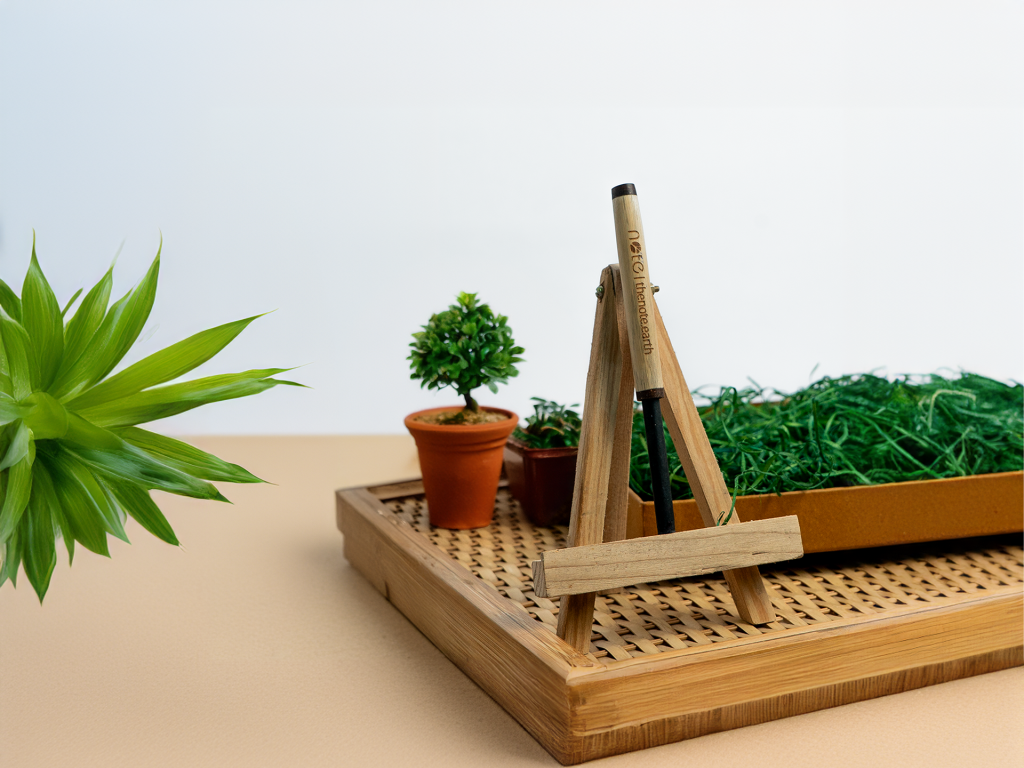
In January 2024, he launched NOTE (No Offense To Earth) as a flagship project to promote sustainable writing instruments. Currently priced at ₹50, these pens, with an option for a metal, paper, or bamboo exterior, and refills are available on their website. “We’ve also received international orders, sending small shipments to France and the UAE.” But Saurabh is confident that prices will reduce drastically within a year, and is aiming to reduce production costs by two-thirds. “In the next 3-4 years, our goal is to match the affordability of traditional plastic pens.” we will be able to make it at the same price as an affordable plastic pen.” Initially targeting B2B sales, Saurabh believes the real impact will come when they reach consumers directly (B2C).
Being the first movers, there is no blueprint for Saurabh to follow. “Starting from scratch is a challenge but we are getting the opportunity to change the system. This positions us as leaders in innovation.” Currently focused on establishing their systems, the 36-year-old is confident that within the next 5-10 years, they will surpass plastic pens. “Our material costs are low and abundant. While paper faces no scrutiny, plastic is constantly questioned.”
Each year, over 50 billion pens are discarded, persisting indefinitely on the planet. This troubling fact drives Saurabh, as plastic pens are nearly impossible to recycle. “Recycling only occurs if it’s commercially viable. PET bottles have high grammage, you know where to give it and it’s only one material. Pens, however, have a multi-material composition—body, cap, nib, refill—that’s difficult to dismantle,” explains Saurabh. His main concern is that “a pen is used for just 30-40 minutes but remains on the planet forever.”
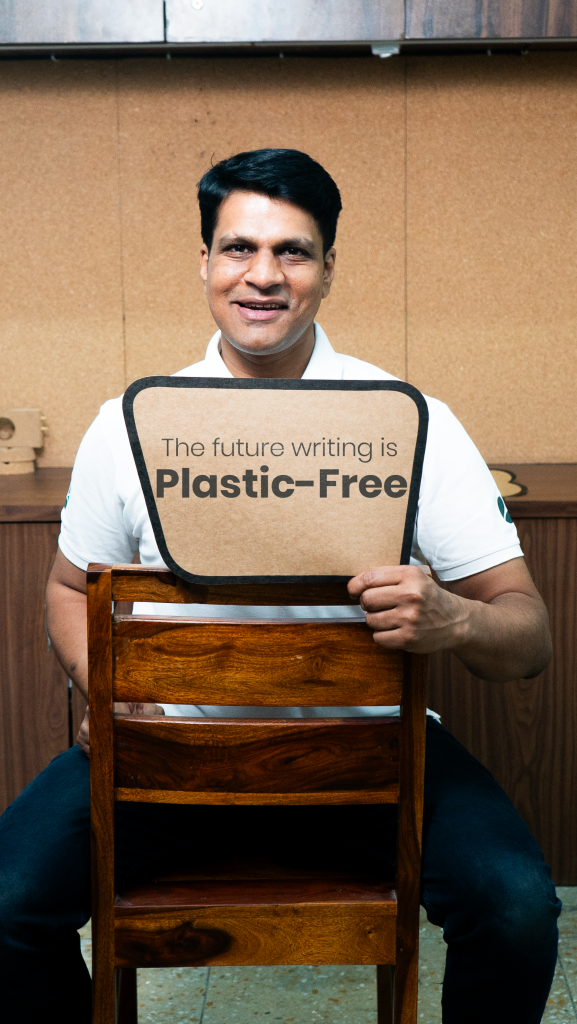
Ask him the reason behind big players’ reluctance to venture into biodegradable pens, and he responds, “There was no demand, hence no pressure on the manufacturers. They focussed on design innovations and ignored the issue of nonrecyclable plastic in pens. Also, their infrastructure is built for plastic pens, and they don’t want to make drastic changes.” However, Saurabh was happy to take the lead. “We had the opportunity to rethink the design of sustainable ball pen, considering both functionality and eco-friendliness.”
The future
Having taken the first step, Saurabh now aims to reduce production costs and establish a robust distribution channel over the next few years. “Each day we delay bringing eco-friendly pens to market, lakhs of plastic ones are produced. It’s crucial to collaborate with major market players who have extensive distribution networks reaching small stationery shops across India,” says Saurabh, who plans to make a million pens per month by January 2025.
Switching from plastic pens to biodegradable ones will save a significant amount of plastic from ending up in landfills and reduce CO2 emissions. “Eliminating plastic will prevent about 1.25 lakh tonnes from reaching landfills. Additionally, you’ll cut down on CO2 emissions associated with plastic production,” Saurabh explains. “In our case, energy consumption and CO2 emissions are lower because, unlike plastic, paper doesn’t need to be melted.”
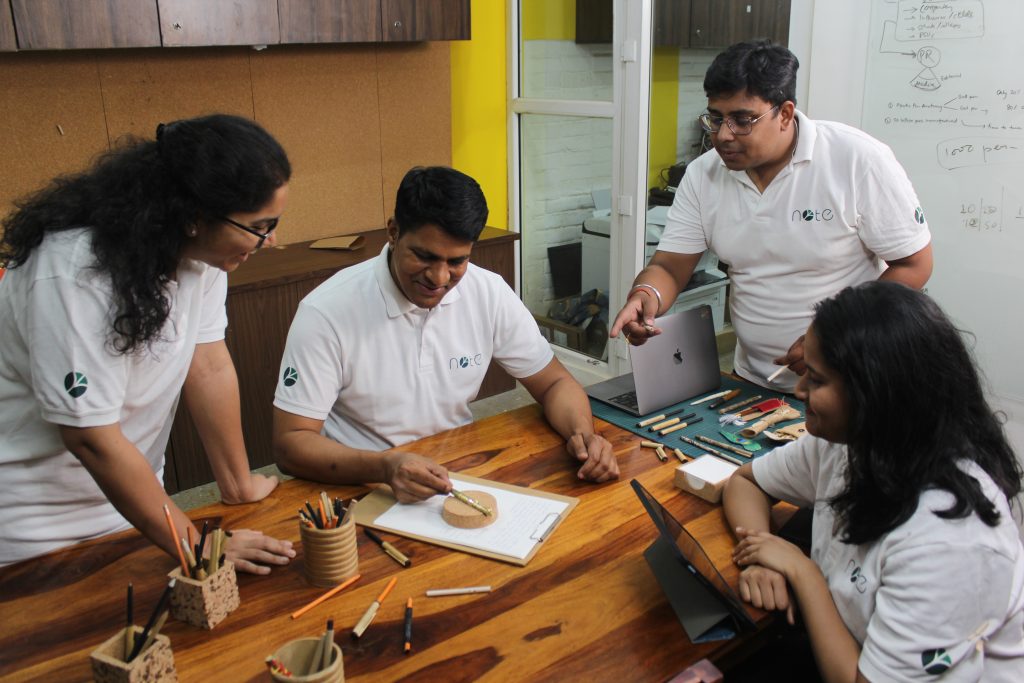
Though digitisation has severely impacted the metres of writing, Saurabh emphasises the importance of writing instruments, especially for schoolchildren. “It’s ironic that while teaching kids about environmental protection, we’re giving them writing tools made from cut trees or melted plastic,” he notes. He aims to change this by ensuring students use biodegradable writing instruments from their first day in school. “Our goal should be to avoid introducing an entire generation to plastic pens or wooden pencils,” he signs off.
- Follow Saurabh Mehta on LinkedIn
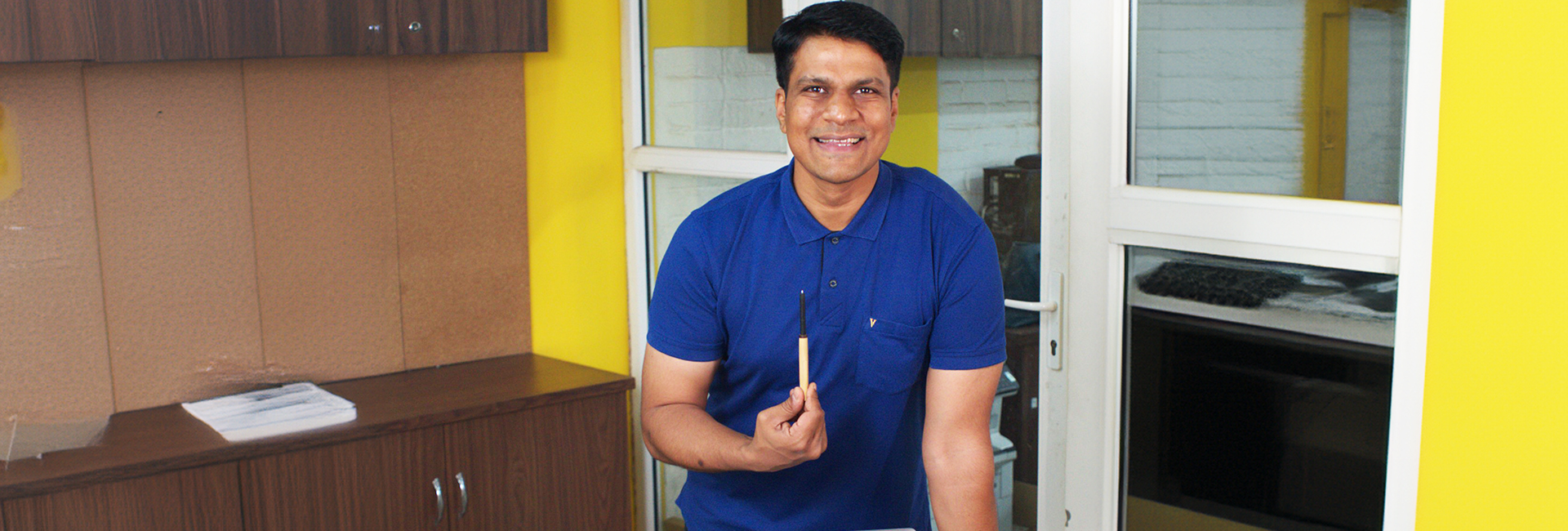


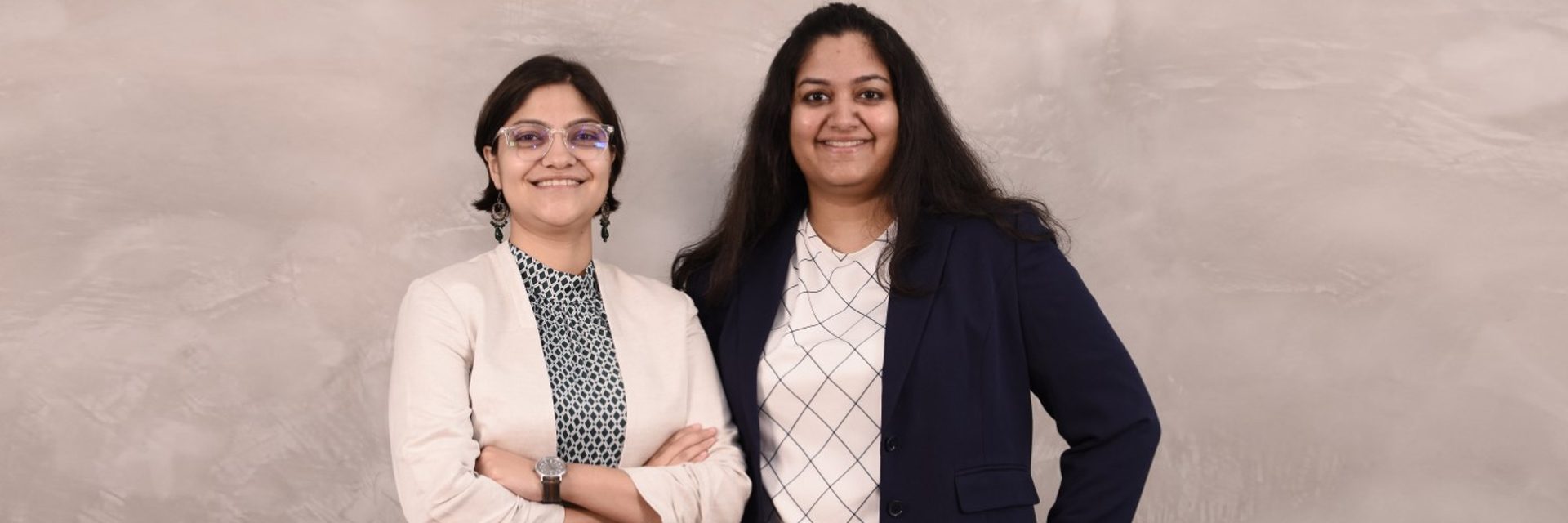
an insipiration, Amazing to see one move from Idea to reality
Wonderful product – design is also trendy